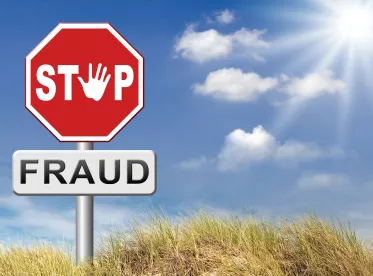Emergency COVID-19 relief legislation signed into law by President Trump, including the Coronavirus Aid, Recovery, and Economic Security Act (“CARES Act”), has allocated more than $2 trillion in economic aid to individuals, businesses, non-profits and government entities adversely impacted by the pandemic.1 Two primary components of the relief legislation are the Paycheck Protection Program (“PPP”) and the Economic Injury Disaster Loan Program (“EIDL”) administered by the Small Business Administration (“SBA”), which have already supported millions of forgivable and low-interest loans to eligible small businesses and non-profits. Another component is direct funding to the Treasury Department (“Treasury”), much of which has been invested in Federal Reserve facilities that will support another $2 trillion to $5 trillion in new financing to businesses and government entities facing liquidity issues. The size of these programs dwarfs any prior relief programs, including the $700 billion Troubled Asset Relief Program (“TARP”) signed into law by President Bush in 2008 and the $787 billion American Recovery and Reinvestment Act (“Recovery Act”) signed into law by President Obama in 2009.
These relief programs aim to prevent widespread economic collapse from the COVID-19 pandemic. But, if past is prologue, another reality looms: many lenders and borrowers of emergency financing will become targets of federal investigators looking to identify and punish fraud and abuse within the federal relief programs.
Investigations of SBA Loan Fraud
Lenders and borrowers who participate in the PPP, EIDL and other SBA loan programs must comply with numerous rules and restrictions, including those described in guidance provided by the SBA on April 23, 2020,2 and face potential investigations by the SBA Office of Inspector General (“SBA OIG”) if their practices do not comply with the law. For instance, a small business owner who inflates average monthly payroll costs or employee headcount to qualify for a larger loan or to avoid repayment of a PPP loan could face criminal liability under the Small Business Act, the False Claims Act, and other federal fraud statutes.3 Similarly, a business owner or executive who falsely certifies that a business meets the SBA’s applicable size and affiliation rules to qualify for a PPP loan could face criminal liability. The SBA has also warned that all PPP borrowers must certify in good faith that “[c]urrent economic uncertainty makes [the PPP] loan request necessary to support the ongoing operations of the [business].”4
Loans awarded through the PPP, EIDL and other SBA loan programs fall under the investigative authority of the SBA OIG. The SBA OIG maintains an active caseload of approximately 240 investigations of potential loan fraud, contracting fraud and other wrongdoing—many of which may result in administrative sanctions, civil penalties and even criminal prosecution.5 Because emergency disaster loan programs like the PPP and EIDL are particularly vulnerable to fraud, the SBA OIG has dedicated resources for oversight.6 Approximately 20 percent of the SBA OIG’s active caseload involves investigation of fraud in emergency disaster loan programs. These investigations have produced more than 165 criminal indictments and 163 convictions since 2006. Given that millions of emergency loans have been and will be extended through the PPP and EIDL, these numbers are likely to surge.
Like more than 70 other Offices of Inspectors General (“OIGs”) throughout the federal government, the SBA OIG holds broad investigative authority under the Inspector General Act (“IG Act”) to prevent and detect fraud and abuse in federal programs and operations.7 The SBA OIG’s investigative authority includes the power to issue subpoenas for documents and other records. The SBA OIG also has direct law enforcement authority under the IG Act, including independent authority to seek and execute search and arrest warrants. However, the IG Act requires the SBA OIG to “expeditiously” refer any criminal activity to the U.S. Department of Justice (“DOJ”), which has been directed to prioritize the investigation and prosecution of all criminal conduct relating to the COVID-19 pandemic.8
Investigations of Treasury-Backed Loan and Securities Fraud
The CARES Act also creates new oversight mechanisms aimed to prevent and detect fraud and abuse of the emergency relief made available. In particular, the CARES Act creates a new Special Inspector General for Pandemic Recovery (“SIGPR”) that is responsible for investigating possible fraud and abuse associated with loans, loan guarantees, and other investments made by the Treasury. The SIGPR’s investigative authority extends to Federal Reserve programs and facilities funded by the Treasury under the CARES Act. For this reason, individuals employed by financial institutions, businesses and other entities that extend or receive financing through COVID-19 emergency facilities also face possible investigation by the SIGPR.
In most respects, the SIGPR resembles the Special Inspector General for the Troubled Asset Relief Program (“SIGTARP”), created in 2008 to investigate fraud and abuse associated with the $700 billion emergency loan program administered through the Treasury. If the SIGTARP’s activities since 2008 are any indication, the SIGPR is likely to pursue fraud investigations aggressively and refer hundreds of criminal investigations to the DOJ for prosecution. To date, SIGTARP investigations have resulted in over 430 criminal prosecutions by the DOJ and more than 370 convictions for bank fraud, securities fraud, money laundering, mortgage fraud, conspiracy and other criminal offenses.9 Of more than 290 defendants sentenced to serve time in prison from a SIGTARP investigation, approximately 25 percent were employed by financial institutions and approximately 60 percent were borrowers or homeowners who received assistance through various TARP facilities.
The SIGPR has the same investigative authorities provided to other OIGs under the IG Act, including the power to issue subpoenas and to seek and execute search and arrest warrants. Additionally, the SIGPR has certain authorities and responsibilities conferred by the CARES Act. First, the SIGPR is authorized to obtain, upon request, information or assistance from “any department, agency, or other entity of the Federal Government.” Second, the SIGPR is required to report to Congress “without delay” whenever such information or assistance is, in the judgment of the SIGPR, “unreasonably refused or not provided.” This reporting requirement to Congress, rather than an agency head as required of others under the IG Act, is the subject of a signing statement by President Trump, but it is unclear at this time what impact, if any, the President’s signing statement will have on the enforcement of SIGPR subpoenas and requests for information.
Inter-Agency COVID-19 Investigations
Anyone who extends or receives financing through a federal COVID-19 relief program should also be aware that the new emergency relief legislation directs federal investigators to coordinate their investigations of possible fraud and abuse. In particular, the CARES Act establishes a Pandemic Response Accountability Committee (“PRAC”) to coordinate and support oversight of federal spending through the various federal COVID-19 relief programs. The PRAC, housed within the existing Council of Inspectors General on Integrity and Efficiency (“CIGIE”),10 is comprised of several federal IGs, including the SBA IG and the SIGPR, that oversee agencies that will disburse funds made available under the CARES Act or are otherwise involved in the federal response to the COVID-19 pandemic.11
The PRAC is largely modeled after the Recovery Accountability and Transparency Board (“Recovery Board”), which similarly consisted of federal IGs tasked with overseeing spending covered under the Recovery Act in 2009. The Recovery Board—largely known as the oversight body responsible for the tracking website www.Recovery.gov12—reportedly claimed in its final month a role in investigations that produced more than 1,665 criminal convictions, pleas and judgments.13
Like the Recovery Board before it, the PRAC holds the broad investigative authorities of the individual IGs. The PRAC and its staff are authorized to collaborate with or support any IG in conducting investigations or to conduct independent investigations, and are authorized under the IG Act to issue subpoenas for documents and other records. The PRAC also has authority under the CARES Act to issue and enforce subpoenas to compel the testimony of “persons who are not Federal officers or employees.”
Millions of financial institutions, businesses and non-profits have already extended or borrowed emergency financing under a federal emergency loan program, and many more are expected to participate in the near future. Past experience has shown that when the dust settles, federal IGs will aggressively investigate and prosecute fraud and abuse. If you have questions about your participation in a federal emergency loan program, including the risk of investigation and liability, the attorneys listed below have experience defending allegations of fraud and would be happy to respond to your questions or concerns.
1 E.g., The Coronavirus Preparedness and Response Supplemental Appropriations Act, 2020 (P.L 116-123); the Families First Coronavirus Response Act (P.L. 116-127); the CARES Act (P.L 116-136); and the Paycheck Protection Program and Health Care Enhancement Act (P.L. 116-139).
2 Paycheck Protection Program Loan Frequently Asked Questions (FAQs) (Apr. 23, 2020), available at https://home.treasury.gov/system/files/136/Paycheck-Protection-Program-Frequently-Asked-Questions.pdf.
3 E.g., 18 U.S.C. § 371 (conspiracy to commit offense or to defraud United States); § 1001 (false statements); § 1341 (mail fraud); § 1343 (wire fraud); § 1344 (bank fraud); and § 1349 (conspiracy to commit fraud).
4 SBA’s April 23, 2020 guidance states, “[f]or example, it is unlikely that a public company with substantial market value and access to capital markets will be able to make the required certification in good faith, and such a company should be prepared to demonstrate to SBA, upon request, the basis for its certification.” However, “[a]ny borrower that applied for a PPP loan prior to the issuance of this guidance [on April 23, 2020] and repays the loan in full by May 7, 2020 will be deemed by SBA to have made the required certification in good faith.”
5 During Fiscal Year 2019, SBA OIG actions resulted in 19 suspensions, 14 debarments and $72.6 million in potential civil recoveries and fines. During the same period, SBA OIG investigations resulted in 49 criminal indictments by the DOJ and 36 convictions. See SBA OIG FY 2021 Congressional Budget Justification, available at https://www.sba.gov/sites/default/files/2020-02/SBA-OIG-FY-2021-CBJ.pdf.
6 SBA OIG audits in the past have identified that SBA’s emergency disaster loans are vulnerable to fraud and losses because loan transactions are often expedited in order to provide quick relief and the volume of loan applications can quickly overwhelm SBA’s ability to exercise careful oversight of lending transactions. To combat this, additional funding has been allocated for SBA administration and oversight. For example, the CARES Act more than doubles SBA OIG’s budget request for fiscal year 2021, providing an additional $25 million in funding.
7 Congress enacted the IG Act in the wake of the Watergate scandal, creating 12 independent, Presidentially-appointed Inspectors General (“IGs”) tasked with preventing and detecting fraud and abuse within federal programs and operations. Since then, Congress has expanded the number of statutory IGs to more than 70, including the SBA IG, and enhanced their authority to prevent and detect possible fraud.
8 See Barr Memo to U.S. Attorneys (Mar. 16, 2020), available at https://www.justice.gov/ag/page/file/1258676/download; Press Release, Federal Bureau of Investigation, FBI and Secret Service Working Against COVID-19 Threats (Apr. 15, 2020), available at https://www.fbi.gov/news/pressrel/press-releases/fbi-and-secret-service-working-against-covid-19-threats; see also DOJ Fraud Alert, https://www.justice.gov/coronavirus/combattingfraud.
9 See SIGTARP Semiannual Report to Congress (Oct. 30, 2019), available at https://www.sigtarp.gov/Quarterly%20Reports/October_30_2019_Report_to_Congress.pdf; SIGTARP Financial Institution Crimes & Fines Database, available at https://www.sigtarp.gov/Pages/wd9er7g.aspx.
10 The CIGIE, created by Congress in 2008 to coordinate and oversee the IG community, is an independent entity established within the executive branch. The CIGIE is comprised of all IGs whose offices are established under the IG Act, those that are Presidentially-appointed/Senate-confirmed and those that are appointed by agency heads.
11 The IGs for the Board of Governors of the Federal Reserve System and the Federal Deposit Insurance Corporation have also been named to the PRAC.
12 The PRAC is similarly charged with establishing and maintaining a “user-friendly, public-facing website,” effectively deputizing millions of taxpayers to detect and report fraud and abuse of COVID-19 relief to federal investigators.
13 Charles Clark, “Historic Effort to Track Stimulus Spending Wraps Up,” Government Executive (Sept. 28, 2015), available at https://www.govexec.com/oversight/2015/09/historic-effort-track-stimulus-spending-wraps/122129.







 />i
/>i

